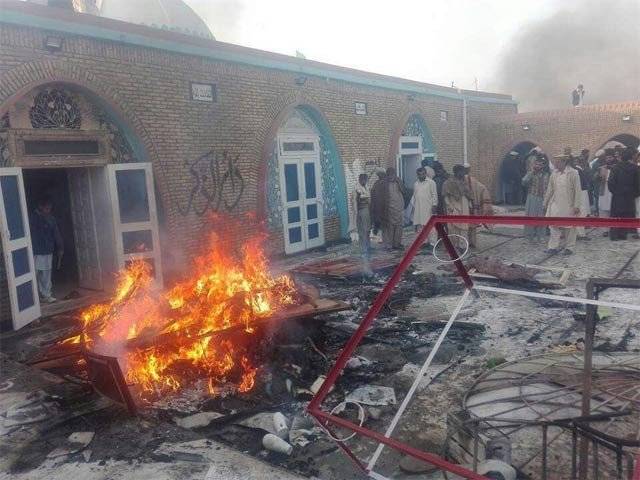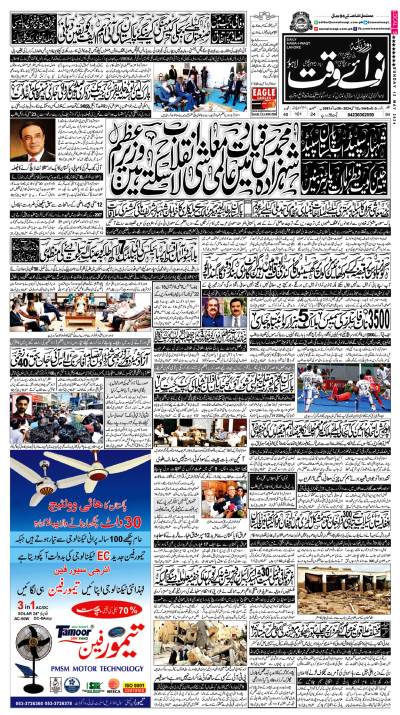Pakistan has a dark history of persecution against the Ahmadiyya community. Since its inception the right wing extremists have been causing agitations and inciting harsh treatment against Ahmadis based on their religious beliefs. The constitutional amendment of 1974 in which Ahmadis were declared non-Muslims was the culmination of the brewing hatred and animosity against them.
This is one of the few examples in the modern history where a state has intervened in a personal matter of its citizens and made it the law of the land. Subsequently, the infamous Ordinance XX of 1984 made it even more difficult for Ahmadis to practice their religious beliefs in Pakistan. This started a full-blown state sanctioned persecution of Ahmadis in Pakistan. Their properties are looted, they are thrown behind bars, and many lives are unjustly taken. In 2010, 86 Ahmadis were killed in an attack in the city of Lahore. Not to mention the political and social climate for Ahmadis in Pakistan that stifles their progress in different walks of life.
A recent incident of violence against Ahmadis occurred near Chakwal in a small village knows as Dulmial. A Muslim mob of more than a 1,000 charged up men attacked an Ahmadi ‘place of worship’. Around 40 Ahmadis were inside the worship place at the time. The perpetrators damaged the property and burnt the carpet and furniture inside the ‘place of worship’. One Ahmadi, Khalid Malik died due to a heart attack during the siege. The leader of this attack was Haji Malik Rashid who traveled all the way from Ontario, Canada to plan this onslaught in the same village he grew up and spent most of his life in.
The irony is that this event took place on the same day when Muslims celebrate the birth of the founder of Islam, Prophet Muhammad. This attack was an outrageous contrast to what Prophet Muhammad stood for. The Prophet of Islam championed human rights, dignity of life and the property of others. In his farewell address Prophet Muhammad said:
“To take any man’s life or his property, or attack his honor, is as unjust and wrong as to violate the sacredness of this day, this month and this territory.”
Prophet Muhammad was a promoter of peace. Perpetrating violence while celebrating his day of birth is a brazen divergence from his true message.
It is reported that the mob threw away the copies of the Holy Quran and ripped them apart. According to the Pakistani law an Ahmadi can face imprisonment for up to three years for an alleged abuse of the Holy Quran. If this report is true, the mob not only physically threw away the Holy Quran, in essence they threw its guidance out the window as well. As the Holy Quran states:
“And who is more unjust than he who prohibits the name of Allah being glorified in Allah’s temples and seeks to ruin them? It was not proper for such men to enter therein except in fear. For them is disgrace in this world; and theirs shall be a great punishment in the next” (2:115).
Had the attackers understood this verse they would have feared attacking the place of worship and playing havoc with it.
The Ahmadiyya community in Chakwal had informed the local authorities about a possible attack before this incident. As usual these complaints fell on deaf ears and the local police merely acted as spectators while the mob was destroying the property. Finally the Army and the paramilitary forces took over to defuse the situation. This goes to show how complaisant local authorities are when it comes to providing basic human rights to the beleaguered Ahmadi population in Pakistan.
Pakistan has a long road ahead in term of healing the wounds of its minority population. Ensuring basic human rights of its citizens is the least a country ought to do. Pakistan must uphold the freedom and dignity of its citizens and put a check on all kinds of bigotry and discrimination in order to stand tall among the civilized nations of the world.






